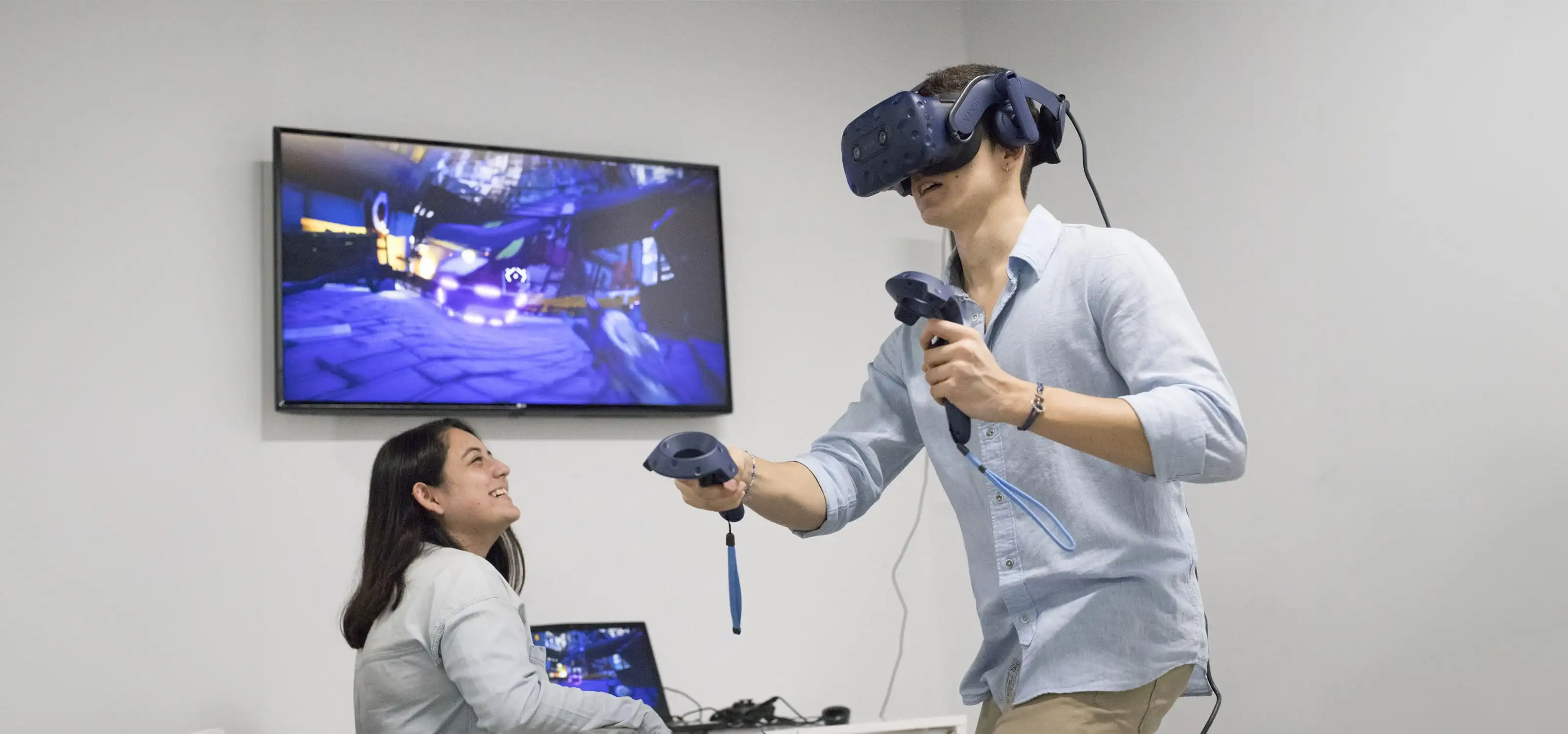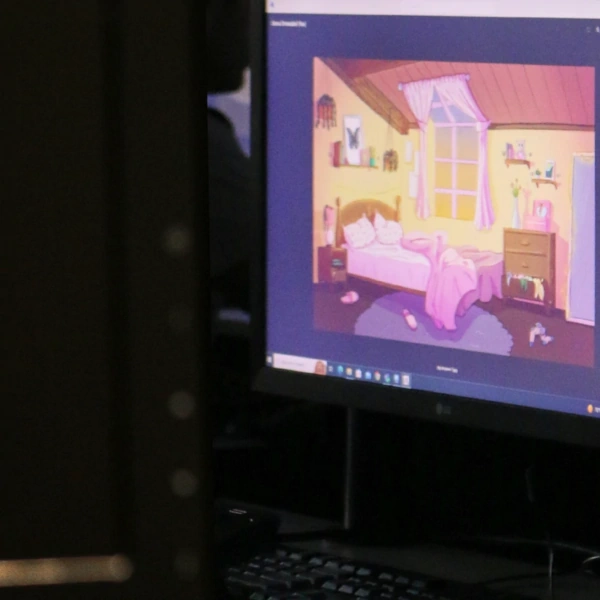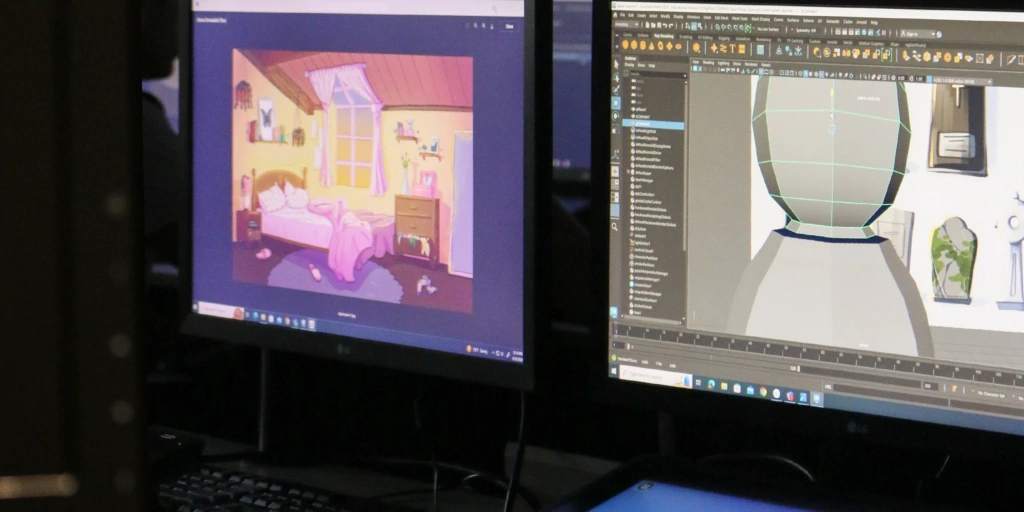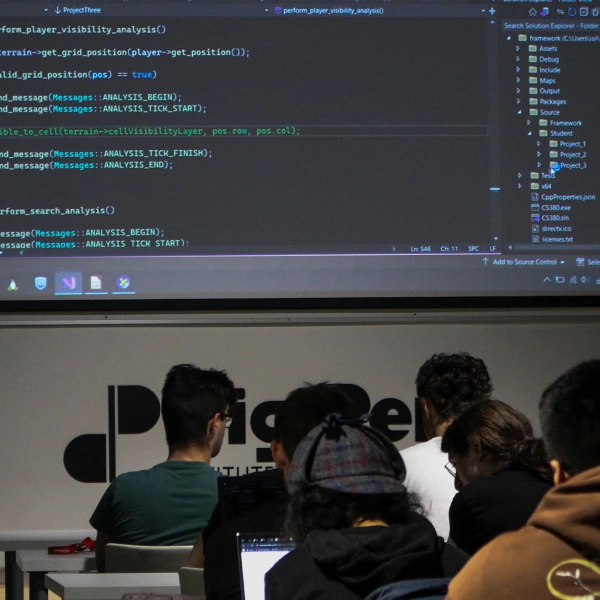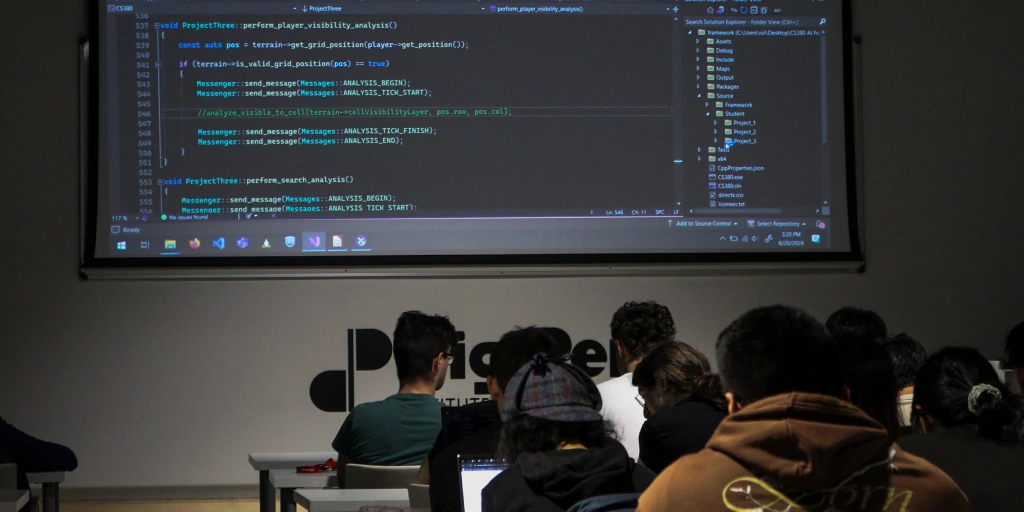DigiPen Institute of Technology Europe-Bilbao offers a rigorous education to prepare you for exciting job opportunities within the digital art and technology industries. By collaborating with other students in project-based settings to create original games, software, animations, and more in an academic environment, you’ll gain foundational knowledge and an impressive portfolio that can help you stand out to prospective employers.
Degree Programs
Explore DigiPen Europe-Bilbao’s comprehensive degree programs tailored for aspiring professionals in video game development, animation, computer science, and beyond. Immerse yourself in an innovative educational journey that will equip you with the skills and knowledge to thrive in your chosen field.
Bachelor of Fine Arts in Digital Art and Animation
DigiPen’s Bachelor of Fine Arts in Digital Art and Animation degree teaches you the skills necessary to create the amazing artwork that populates modern video games, animated films, and other digital media.
This degree program holds students to high standards and is designed for those seeking professional career opportunities as skilled production artists and animators.
See our BFA in Digital Art and Animation overview to learn more about the degree program, student project examples, career outlook, and more.
Bachelor of Science in Computer Science in Real-Time Interactive Simulation
DigiPen’s BS in Computer Science in Real-Time Interactive Simulation degree provides a number of career paths for students interested in the fields of video game and software development.
This program offers extensive coursework in computer science and mathematics as a foundation for advanced topics in computer graphics, 3D simulation, and software engineering.
See our BS in Computer Science in Real-Time Interactive Simulation overview to learn more about the degree program, student project examples, career outlook, and more.
Summer Workshops
Summer workshops are a series of summer programs that provide a glimpse of the DigiPen world to both prospective students and professionals. Students are taught to develop practical skills and critical thinking while participating in fun and engaging projects covering topics such as technology, art and animation, and video games. Additional details on each of our individual workshops can be found on their respective course pages.
To request more information about programs at DigiPen Europe-Bilbao, or to learn more about the admissions process, reach out to us via:
